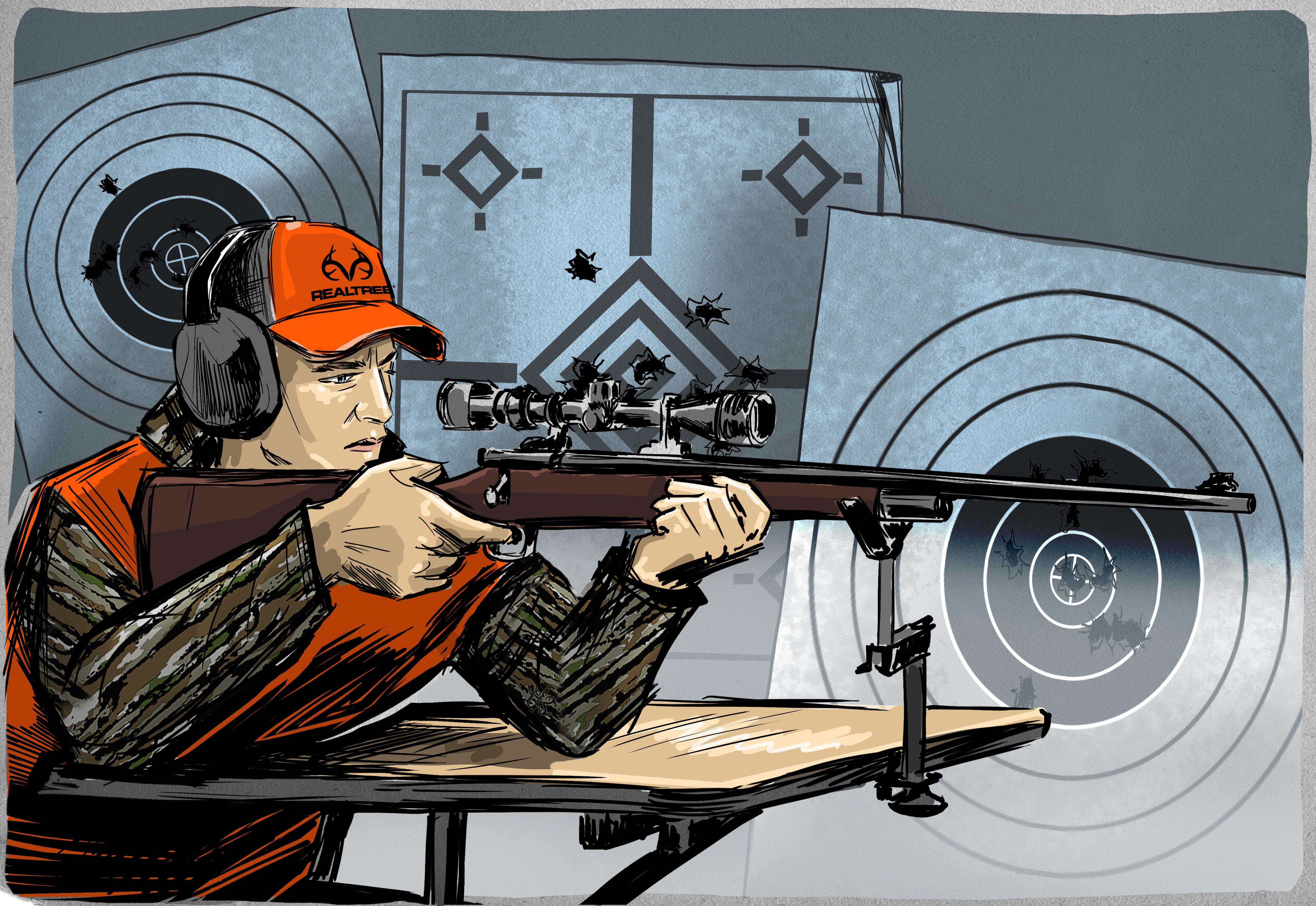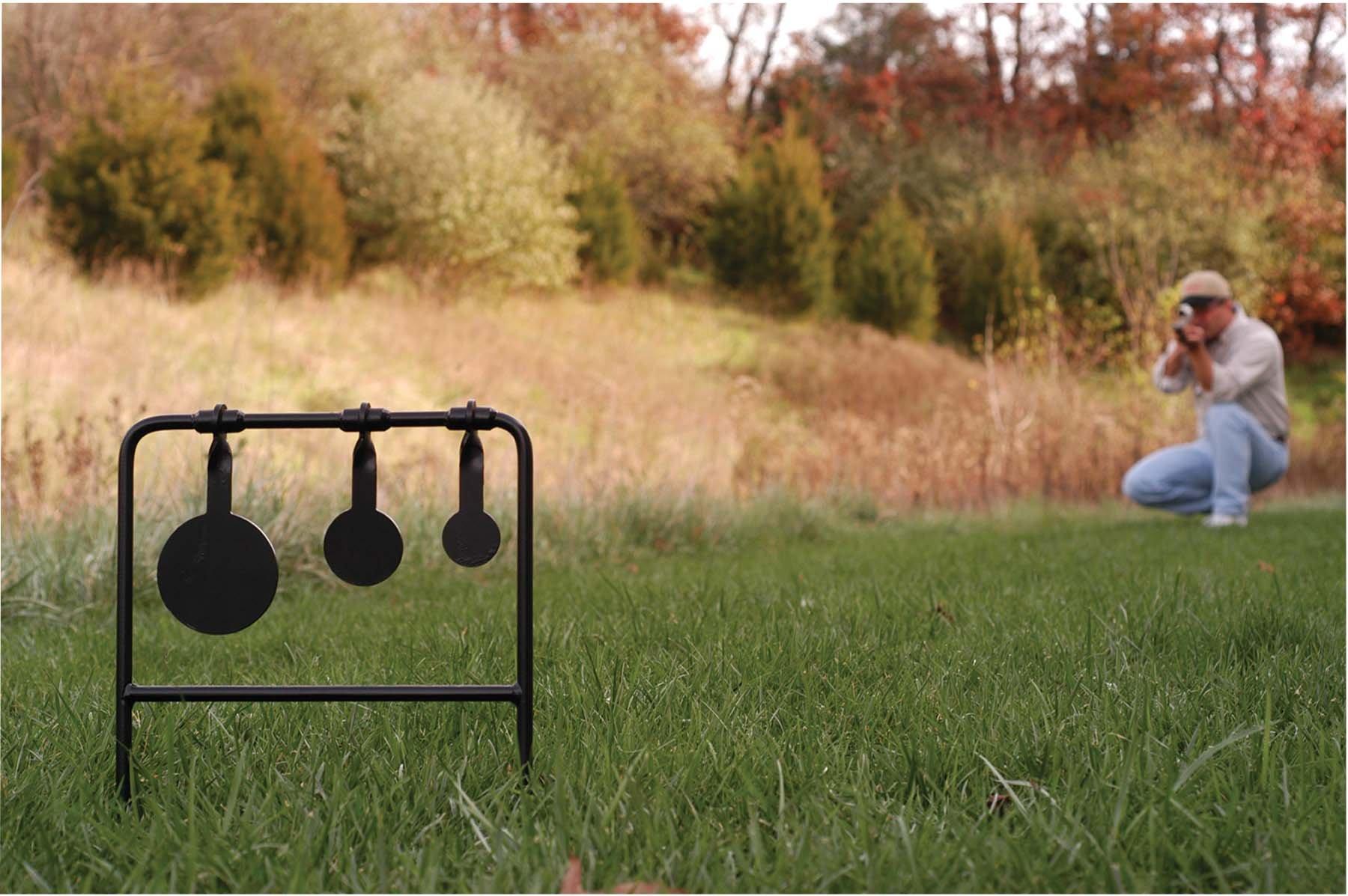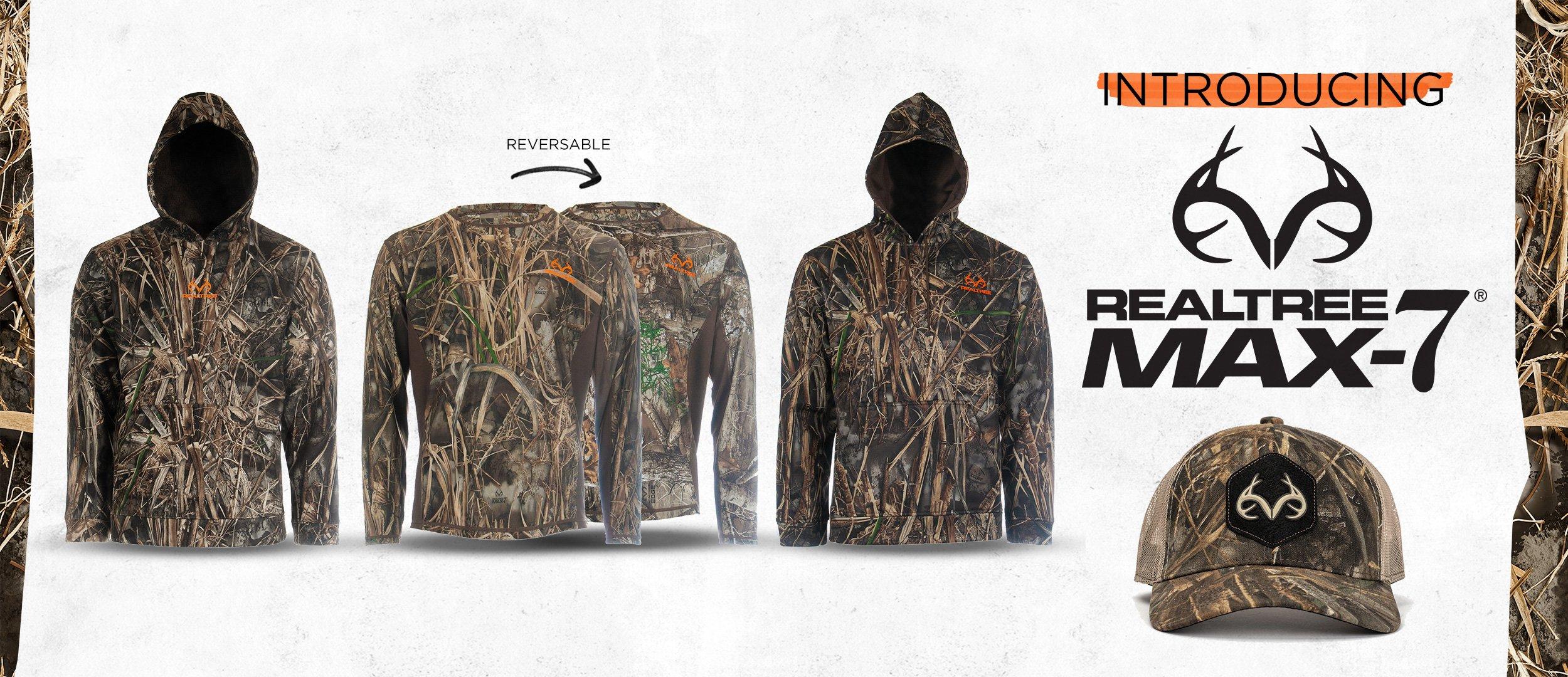Target practice, whether at the nearest gun club or in your backyard gun range, makes you a better hunter. It's a lot of fun, too.
Remember that buck you missed? I'm not talking about the one in your formidable years. I'm talking about the shot you blew a couple seasons ago on that deer that should be hanging in your den. You know, the one you see in your mind every time you look at that bare spot on the wall.
Be honest. How much time did you spend preparing, shooting your hunting weapon, prior to that season? Please don't tell me you headed out under the assumption your scope or sights were still on from the year before. That's just not right, and you know it. Even if your scope or sights were still on, what about your form, your breathing, your trigger squeeze? Were those essential elements of accuracy as polished as they could, or should, have been?
As retired NBA basketball star Allen Iverson so eloquently said, We're talking about practice, man, we're not even talking about the game, when it actually matters, we're talking about practice."
Correct. We are talking about practice. We are talking about how important time at the range is to a hunter's overall chances of success. It's not just about making sure your hunting weapon shoots accurately; it's about you. Practice builds skills that improve your accuracy. Skills that make you a better, more confident shooter.
It seems bowhunters practice more frequently than gun hunters. This isn't an all-encompassing fact, of course, but generally speaking, I believe it to be true if for no other reason than shooting a bow is more convenient (and less expensive) than shooting a gun.
Just about anyone with a quarter-acre in a tight subdivision can set up an archery target behind their house, pace off 20 yards and fling arrows. Firing off a 12-gauge in Redwood Estates or down on 8th Street probably isn't such a great idea, though.
Shooting firearms requires a proper location. Such locations include public or private gun ranges, rural property, or if you're lucky enough, the backyard. Whatever your situation may be, make the most of it.
(Don't Miss: 25 Tips for New Deer Hunters)
Public Ranges
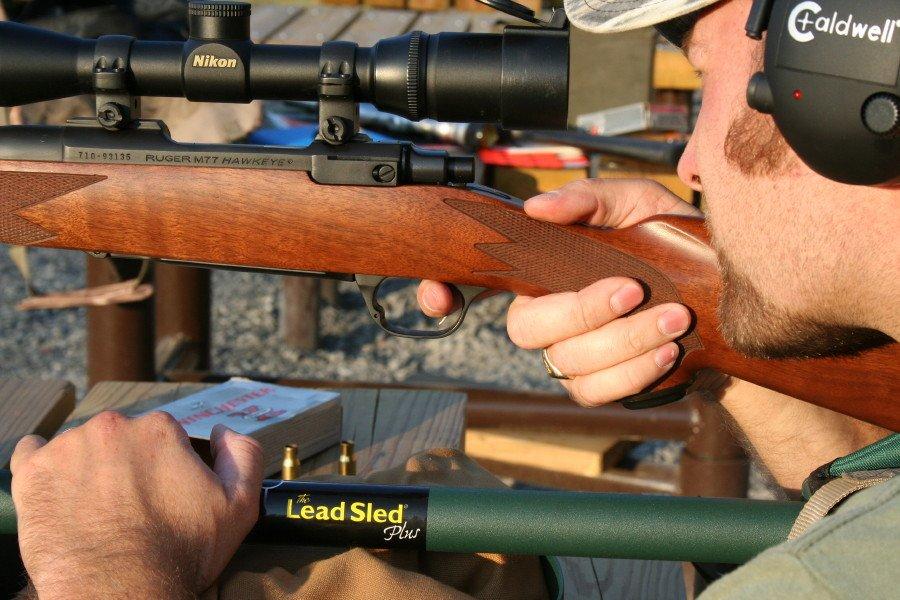
The National Shooting Sports Foundation (NSSF), the trade association for the firearms industry, exists to promote, protect and preserve hunting and the shooting sports. A large part of their mission is making sure there are plenty of places to shoot. On the NSSF website, you'll find endless resources for shooters. To prove just how serious it is about helping you find a place to shoot, the NSSF has designed a separate website devoted to helping you find a range. It's simply called Where to Shoot.
Using Where to Shoot is simple. Just click on the tab Find a Place to Shoot located in the center of the home page. Once there, you can use a number of search criteria to locate a shooting range convenient to your location.
(Don't Miss: The Best Gun Stores in America)
I live in Missouri. When I search by my state, NSSF provides a list of 129 shooting ranges. It's good to know so many exist, but what I'm really interested in is locating ranges close to home. To do this, narrow your search by area or zip code. When I enter my zip code and select to see all ranges within a distance of 30 miles, I find there are six shooting ranges that meet my criteria.
Shooting ranges are nice for a number of reasons. They usually have quality shooting benches and target stands set at established distances. There's also the camaraderie. Chances are there will be other shooters at the range. Where else can you approach a complete stranger while wearing a Glock .40 on your hip and feel perfectly comfortable striking up a conversation while he's busy reloading a 30-round magazine for his AR-15? Ahh, the comfort of kindred spirits.
Build Your Own Range
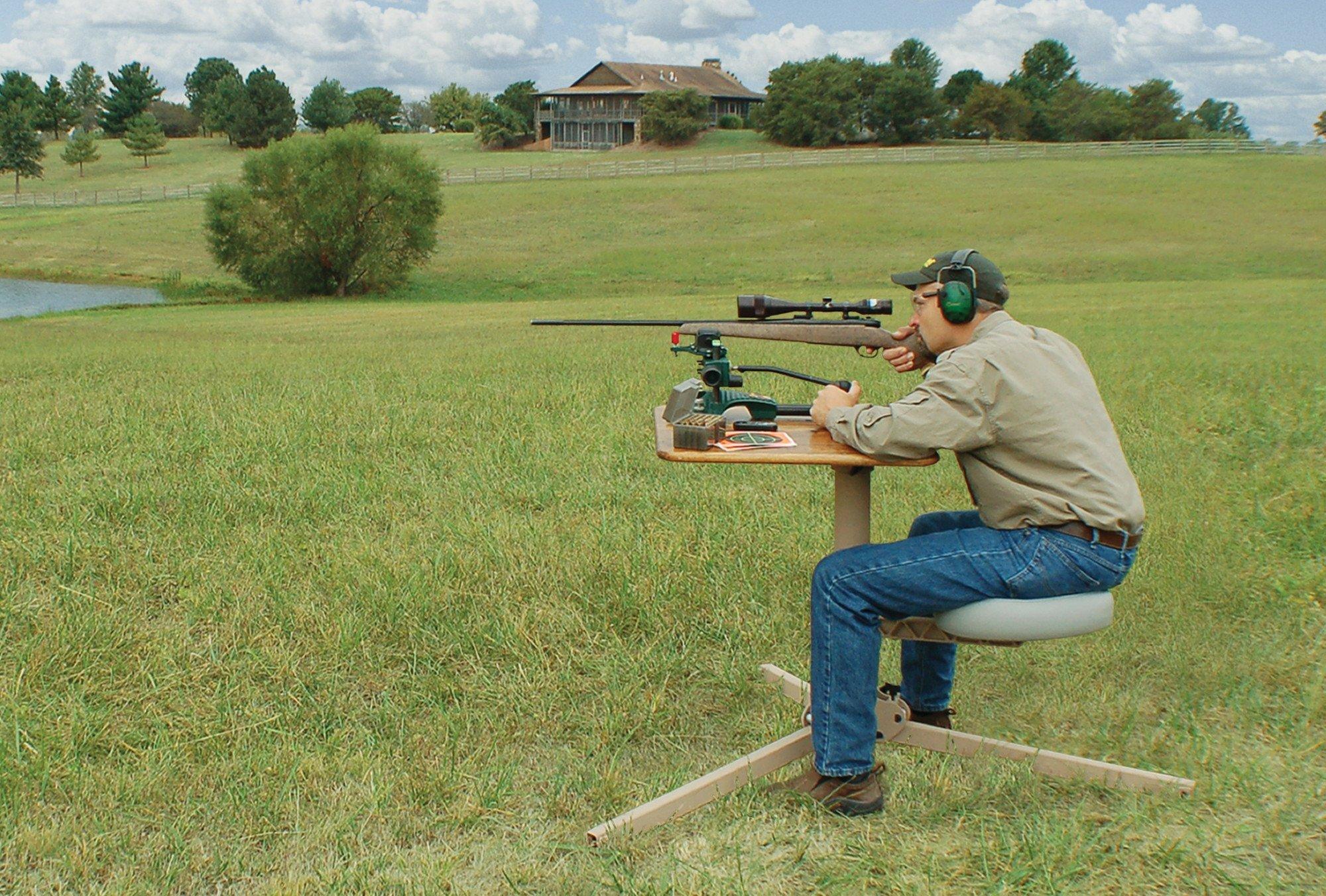
Building a range at camp or on your hunting property is great because it promotes shooting. Do you have any hunting buddies who are notorious for wounding game? I do. How popular do you think he is when the rest of the hunters on the property learn ol' Willie gut-shot another one? Having a range onsite makes shooting a natural way to pass downtime. The benefits of practice become secondary to the enjoyment of shooting.
(Don't Miss: The 5 Guns Every Outdoorsman Needs)
Putting together a decent shooting range doesn't take much time or money. You really only need four things: a shooting bench, a shooting rest, a target stand, and targets, all of which could be homemade or purchased from a sporting goods retailer.
If you choose to go with a homemade range, use or build a picnic table for a bench, fill a couple of sand bags for a rest, build a target stand out of 2x4s, and use cardboard or paper plates for targets. If you'd like a bit more serious shooting range, companies like Caldwell Shooting Supplies and Shooter's Ridge manufacture everything you need. You can buy a weather-resistant shooting table, a quality shooting rest, a target stand and plenty of targets for well under $500. Get a couple buddies to pitch in the cash together. It won't take long to see the value of your investment.
No matter what, safety must always be your first priority when shooting. Wherever you decide to set up your range, be sure you are in a safe location. Be positive of what lies beyond your target. Either set your target stand in front of a proper backstop, or take the time to build one. Mound up dirt or a wood pile. And of course, always wear hearing and eye protection.
Tony Smotherman's Take on Shooting Practice
Realtree Hunting Ambassador Tony Smotherman is a leading expert when it comes to shooting and hunting with muzzleloaders. His career as an outdoor communicator depends on putting game on the ground, and a house full trophies proves he's getting the job done.
Tony takes no chances with his gear. He won't hit the field without knowing for certain his muzzleloader is dead on. Therefore, he shoots — a lot. He understands doing so is the only way to ensure his equipment is working up to its potential, and that his physical and mental abilities are sharp as possible.
I caught up with Tony to ask him a few questions about the importance of practice and working on accuracy for firearm hunters.
What differences do you see between the practice habits of archery hunters and firearms hunters?
Most archery hunters I know spend lots of time prior to the season tuning their bow and shooting. They do this to become familiar with a routine anchor point, to get accustomed to the amount of draw weight they are planning on hunting with, and to figure out which broadheads fly like field points. All this time is spent in the pre-season so that they are ready when the moment of truth arrives and all the movements they make are second nature. Gun hunters should do the same. They should spend the same amount of time behind their weapon as archers do. Unfortunately, I don't think most do. Gun hunters need to get reacquainted with how the stock feels against their cheek, shoot enough rounds so that recoil is no longer noticeable, and have it become second nature to squeeze the trigger instead of jerking it. Just getting to know your gun makes a huge difference in how your groups look down range.
How much do you shoot to prepare for hunting season?
I average about 1,000 rounds out of my muzzleloaders each summer. I do this for two reasons. The first to try and figure out what powder and bullet combo my guns like, and second is to get back in the routine of shouldering my guns. Like a bowhunter, I want the mechanics to be second-nature when the moment of truth arrives.
Where do you do most of your practicing?
The 1,000-round practice routine has not always been the case, but I built my own personal shooting range on my Tennessee farm about 60 yards from the back door of my house. The convenience of my personal gun range and shooting facility has made a ton of difference in the way I shoot and the size of my downrange groups. All I have to do is walk out the door, so I shoot a lot. When I'm on the road, I hit public ranges all the time. I enjoy shooting, so I'll shoot wherever I can, as long as it's a safe and reasonable location.

